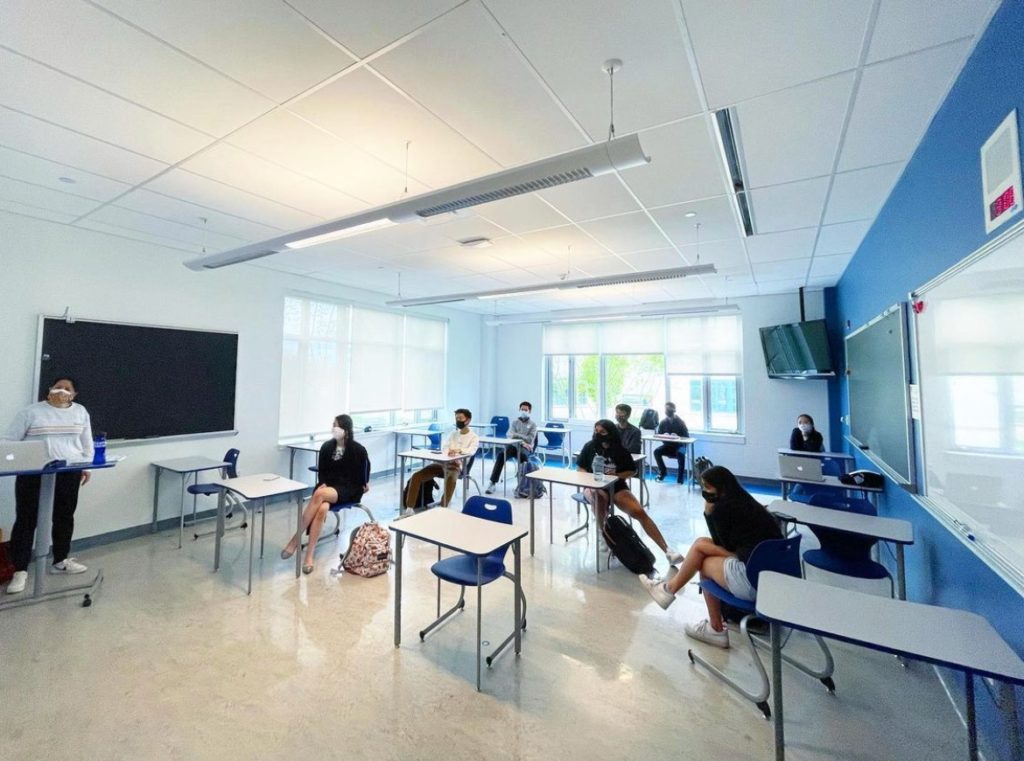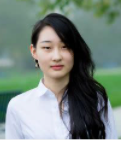Wendy Sun provides insight on Asian American stigma: inside and outside of the EA community
In recognition of May being Asian American and Pacific Islander Heritage Month, Scholium sat down for an interview with Wendy Sun, president of the Asian American Student Union, to discuss her experiences as an Asian American student.
Q: How do you feel about the statistics surrounding the Asian-American population at Episcopal?
I’m not surprised that the population is so small. When I first came here, I heard that it was 20ish percent, but it’s still rising so that is a good trend. I am not familiar enough with American culture since this is my fourth year here at EA and at a school that’s not full of Chinese students, so it was not so comfortable when I first came. It was hard to reach out to people, and I think the stats show that. In the sections of our groups, we’ve all talked about how it was hard to find people of similar backgrounds. People prefer to hang out with people that are physically like them. Yet, Asian Americans do not even look similar and our cultures are very different.
Q: Do feel that EA is doing anything to help your community. If it is doing anything, is it enough?
I would say based on the discussions that we still do not feel comfortable, and that EA can do more. I don’t think enough people are familiar with our culture. I have friends who know I do these clubs and say they want to learn more about my culture but then they never show up to the meetings. We still feel that there are stereotypes that should be corrected, and we feel that it would be nice if EA could do a little bit more.
Q: What would you say to people who feel that they are “justified” in their violence against Asian Americans because of the pandemic?
I don’t know what I should say to the people who think they’re justified because that’s nonsense. The term “Asian” is broad. If you’re going to say that Chinese people in general caused the pandemic, that is already unacceptable. In my knowledge, there is no Asian heritage month because in the world population, Asians are not a minority. There are a lot of people that live in the continent, and we’re so different. But, we’re lumped together. We’re being grouped together as “Asians.” It is stupid to say that one group caused the problem.
I don’t know if EA is aware of this, but I remember in the beginning of the pandemic I was talking to teachers, advisors, mentors about this. I personally do not feel secure going out and speaking Mandarin in public anymore. I am even scared of going out in general. What if someone throws a bottle at me? I already have friends who suffered from those attacks.
Q: Why do you believe Asian Americans are quiet on the subject?
I think there are historical influences and cultural influences. Starting with cultural influences: the first 14 years of my life, I was not encouraged to speak up. When I was living in Asia, or China, more specifically Shanghai––let’s not group everything––I was told that I was a small person and limited in democracy. There’s an idea in Asian culture that you cannot change the world. You have to sit, learn, remain humble, and if you see a problem, you improve yourself. Then, you go to higher positions until you are able to solve the problem or make some changes. In western culture, you don’t sit until you change the world. If you see a problem, you start talking about it. Sometimes talking through stuff is good, like what I am doing now. But I think that our foundational education is that our parents still believe that we should remain humble, that we should not interfere in too many things. There is an idea that ‘I don’t want to offend people, I don’t want to stand out, I don’t want to attract too much attention.’ It’s the same thing for me, I don’t want to attract attention, I will just kindly walk away.
Q: What do you hope happens next at EA?
I’m not sure, I think it’s gonna be a long journey, in general. We should have more discussions on discrimination and it would be nice if the school could make us feel comfortable to speak up. I didn’t speak up almost at all until my senior year. There were a lot of things that were going on that I was not even aware of. It would be nice to have more conversations about that.

Photo courtesy of aasu.ea Instagram
